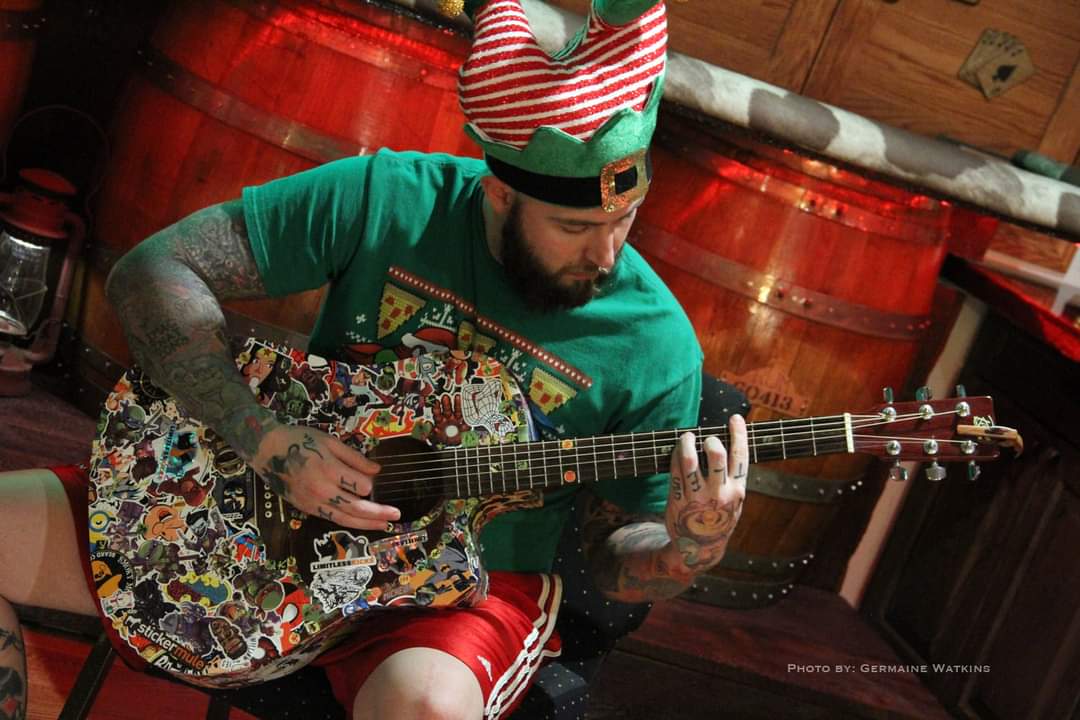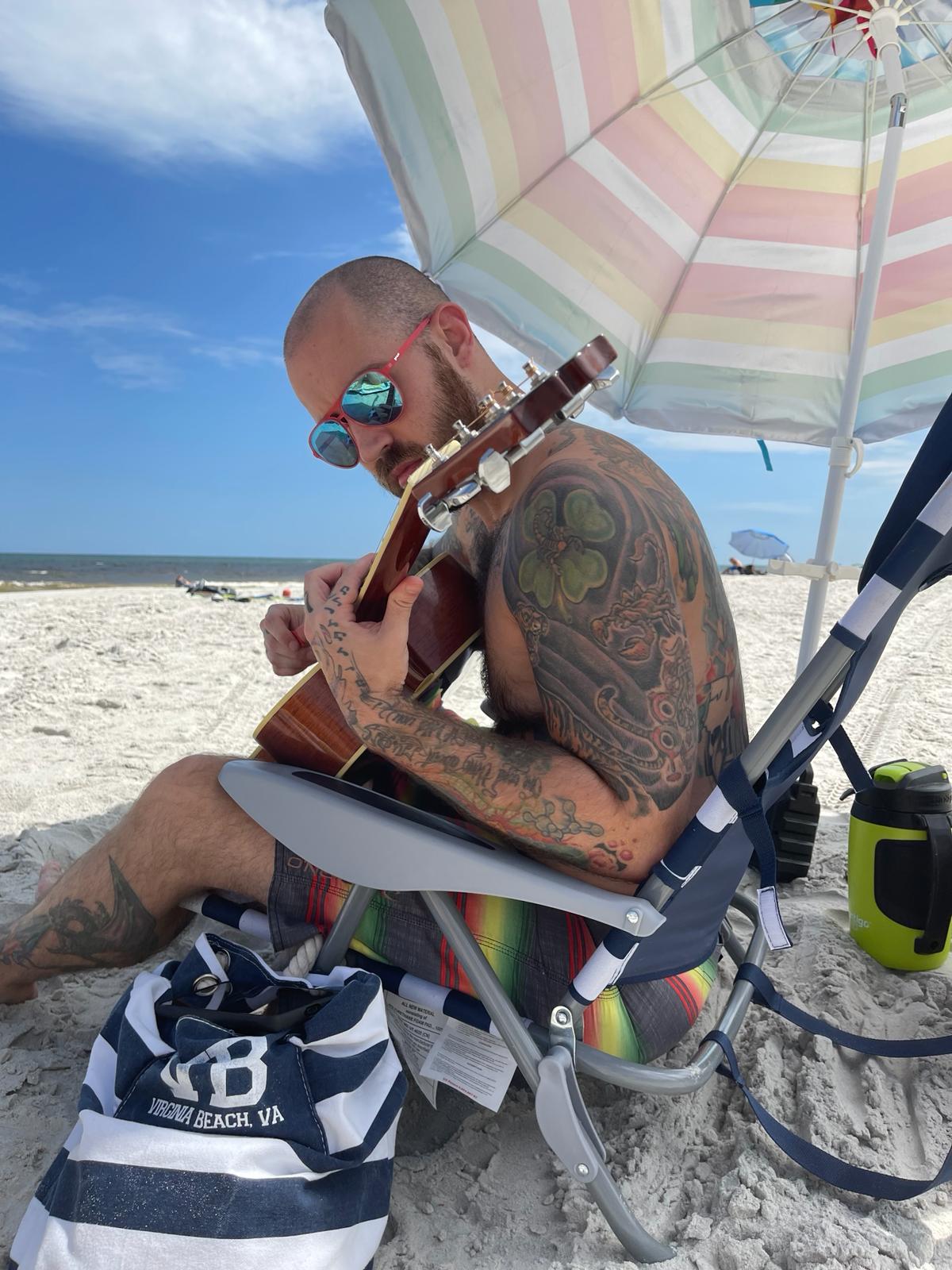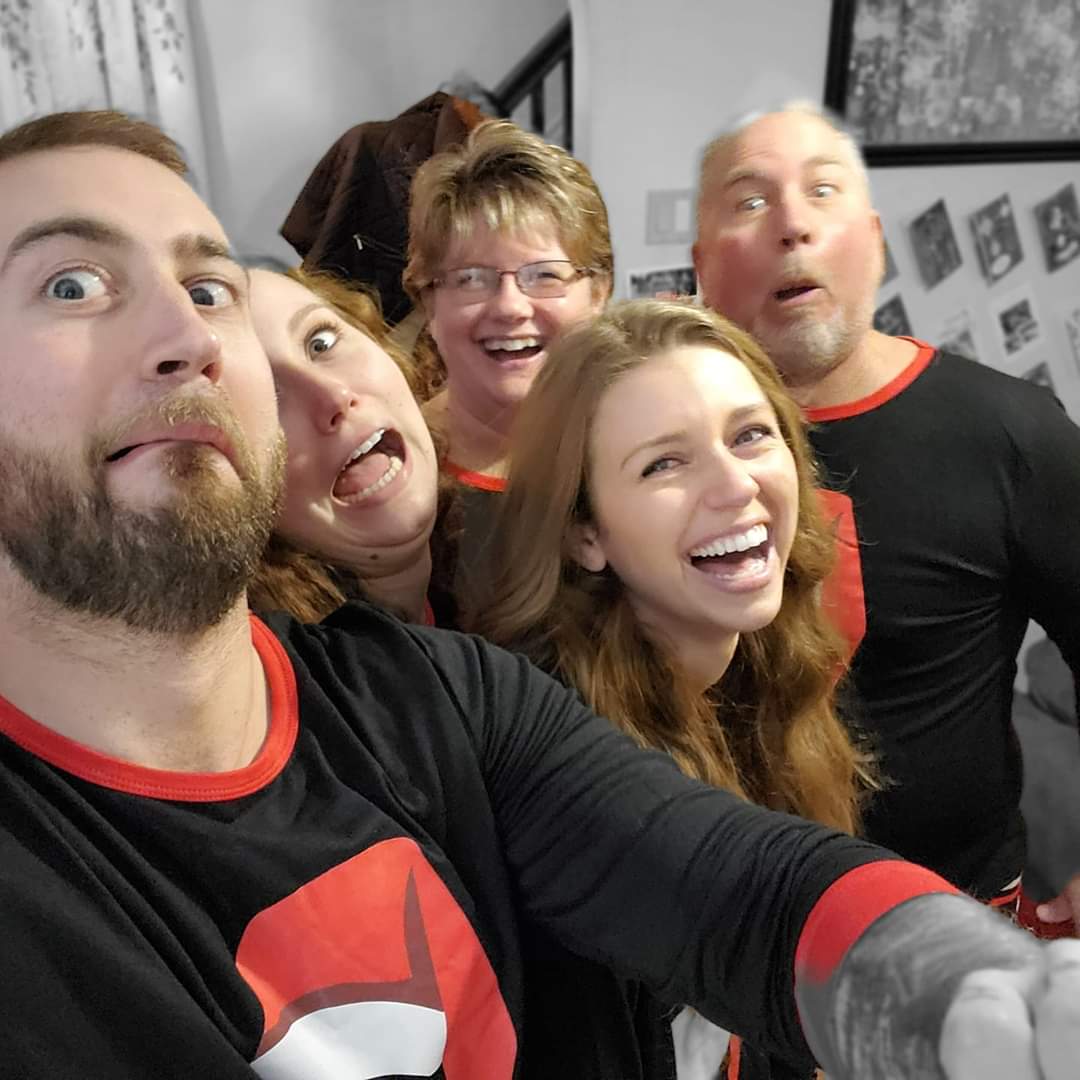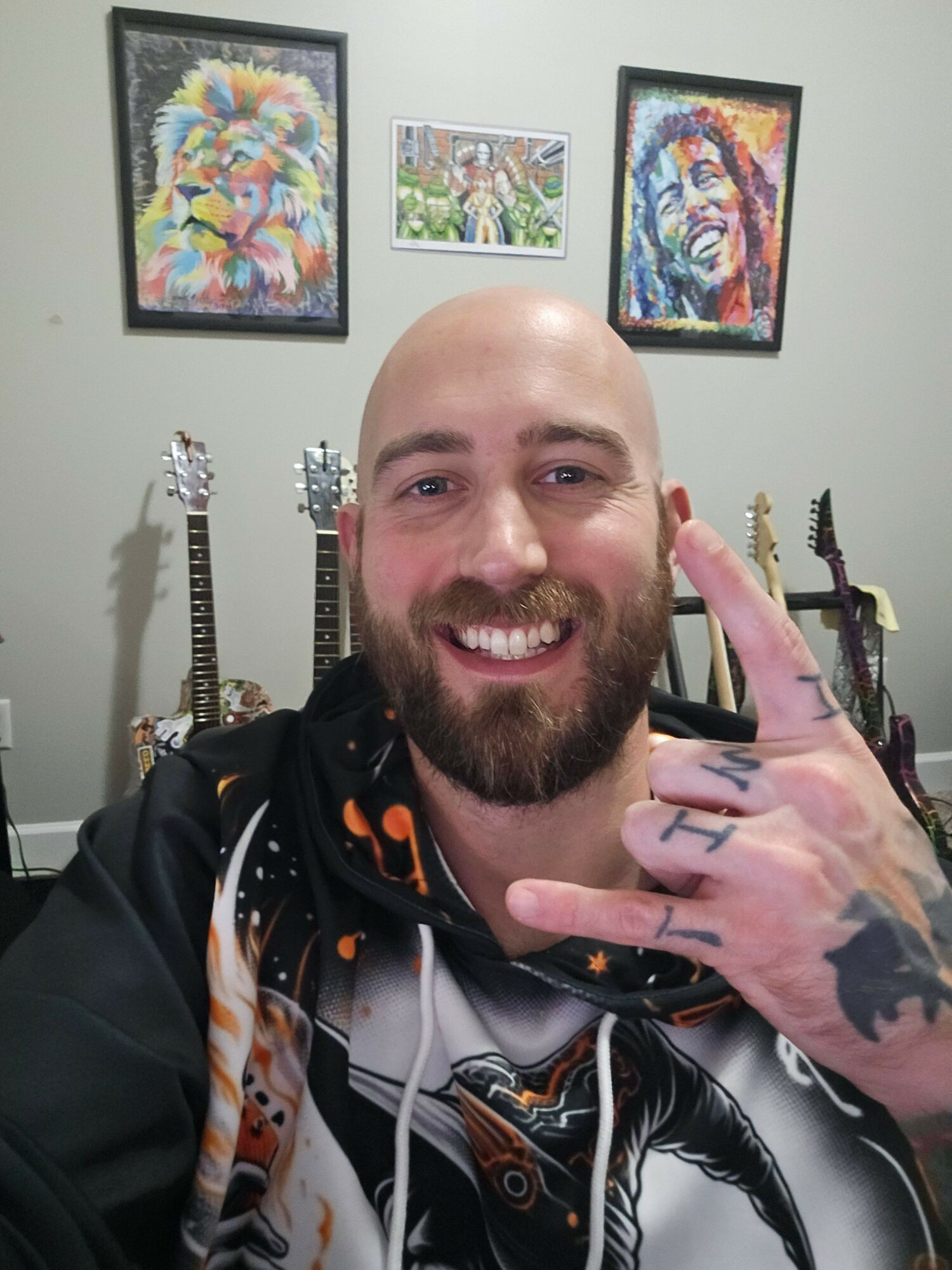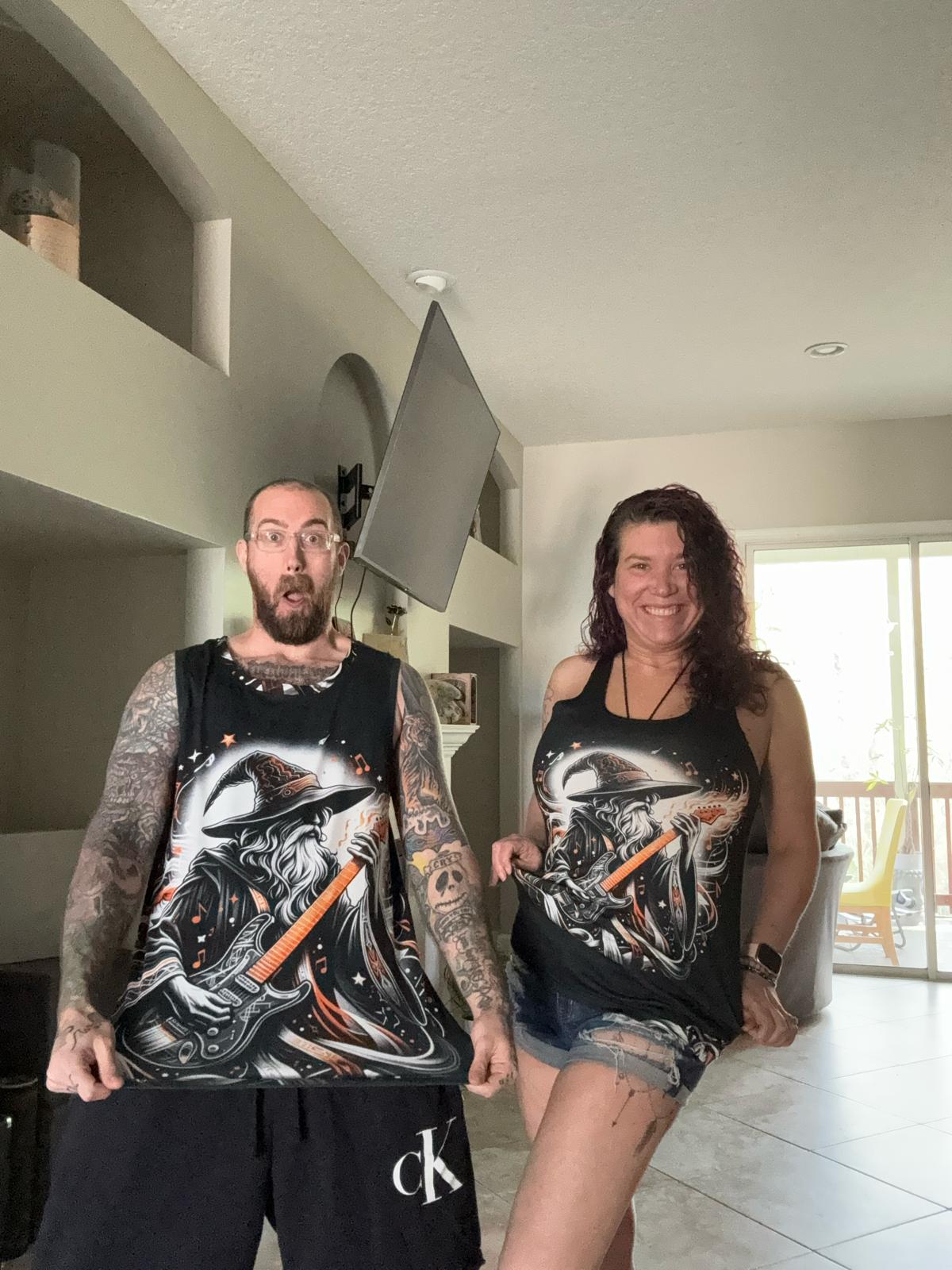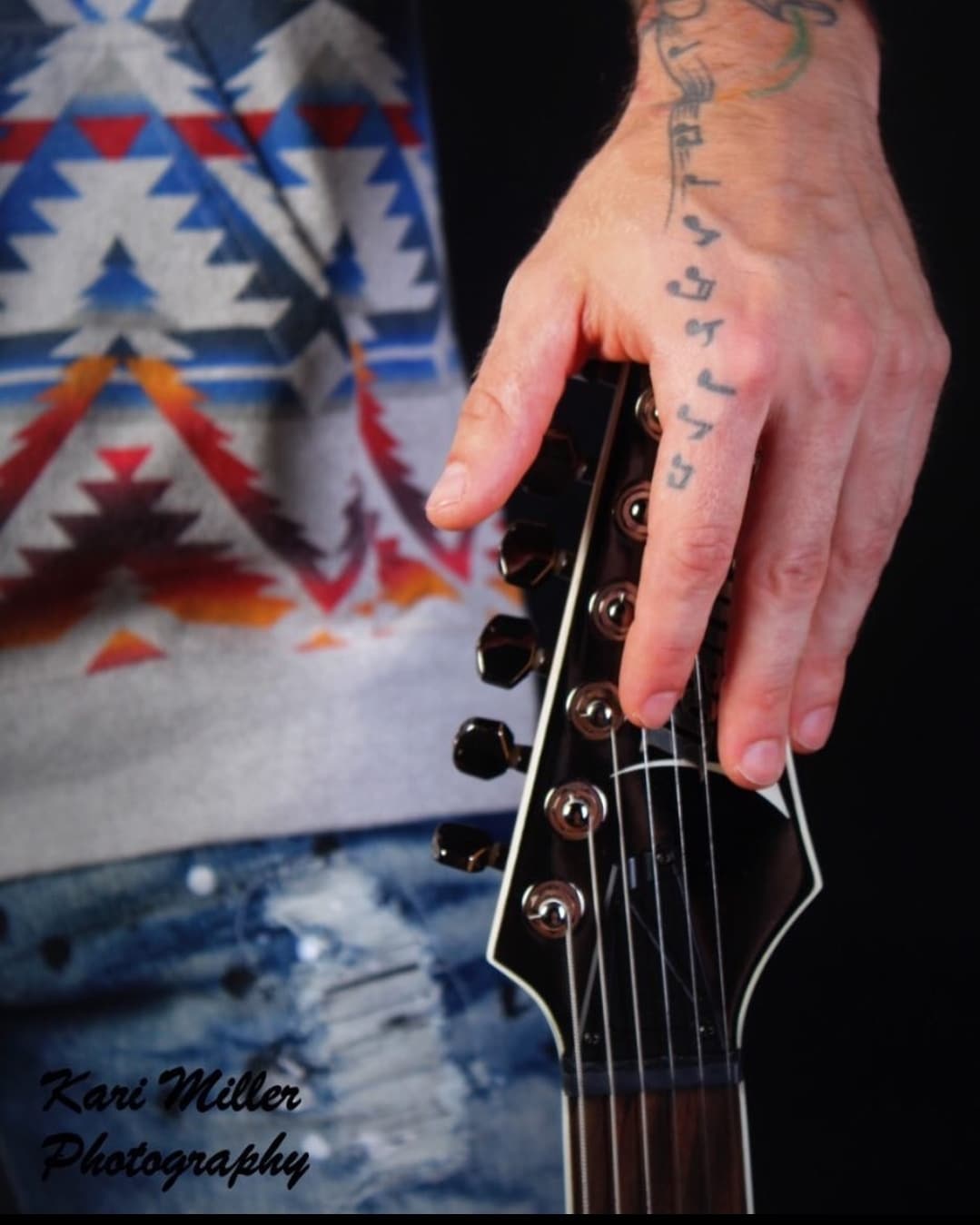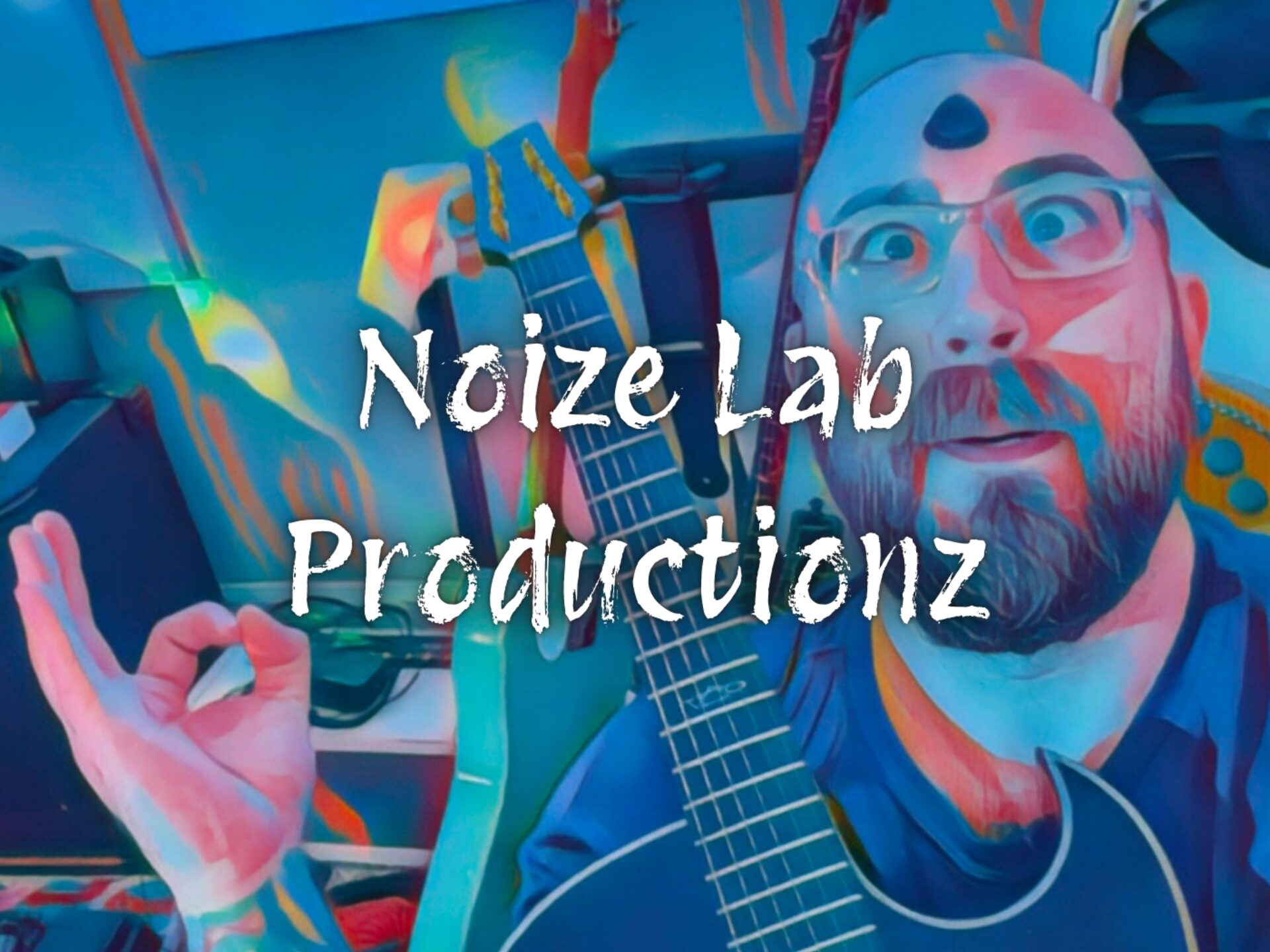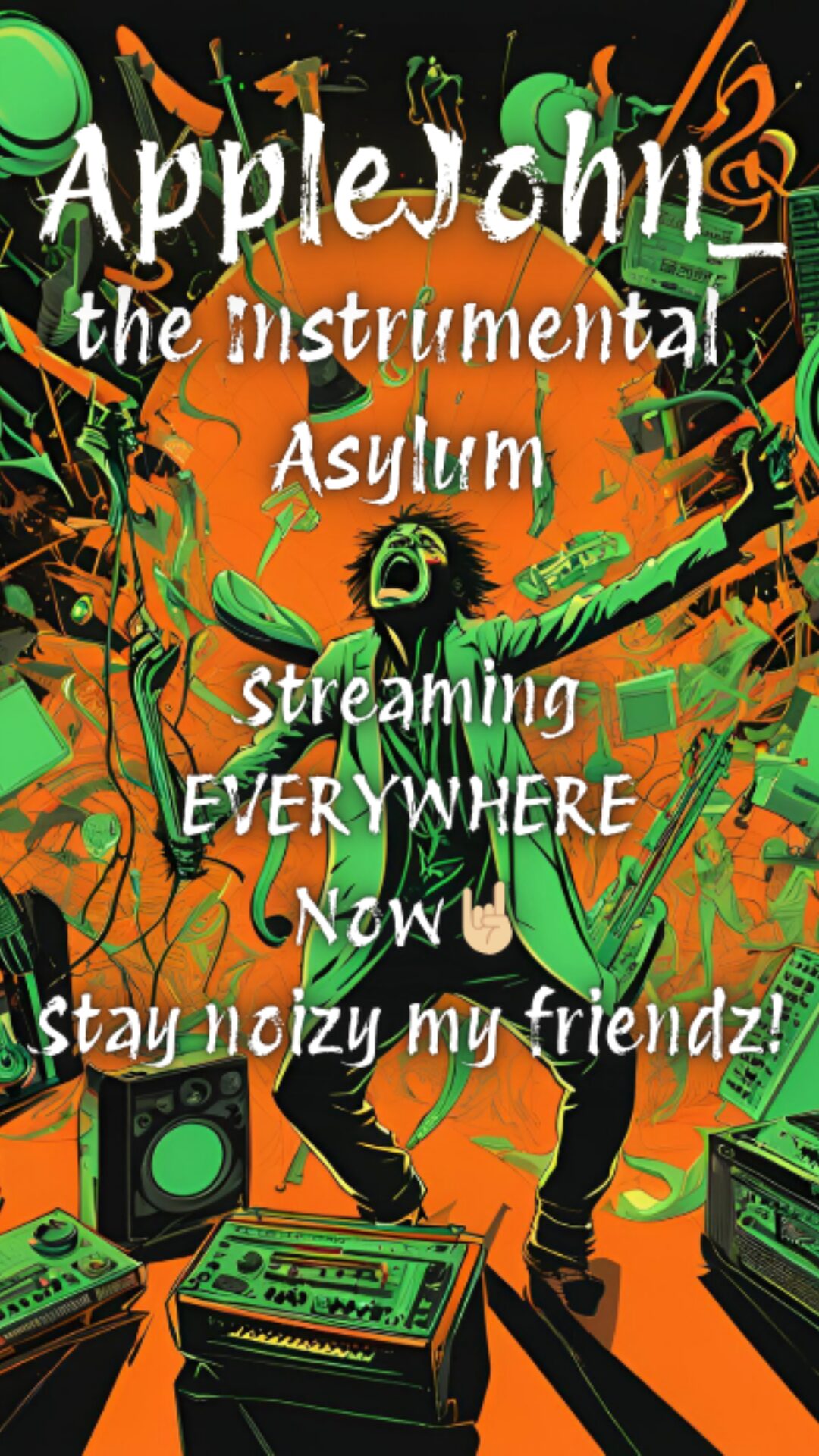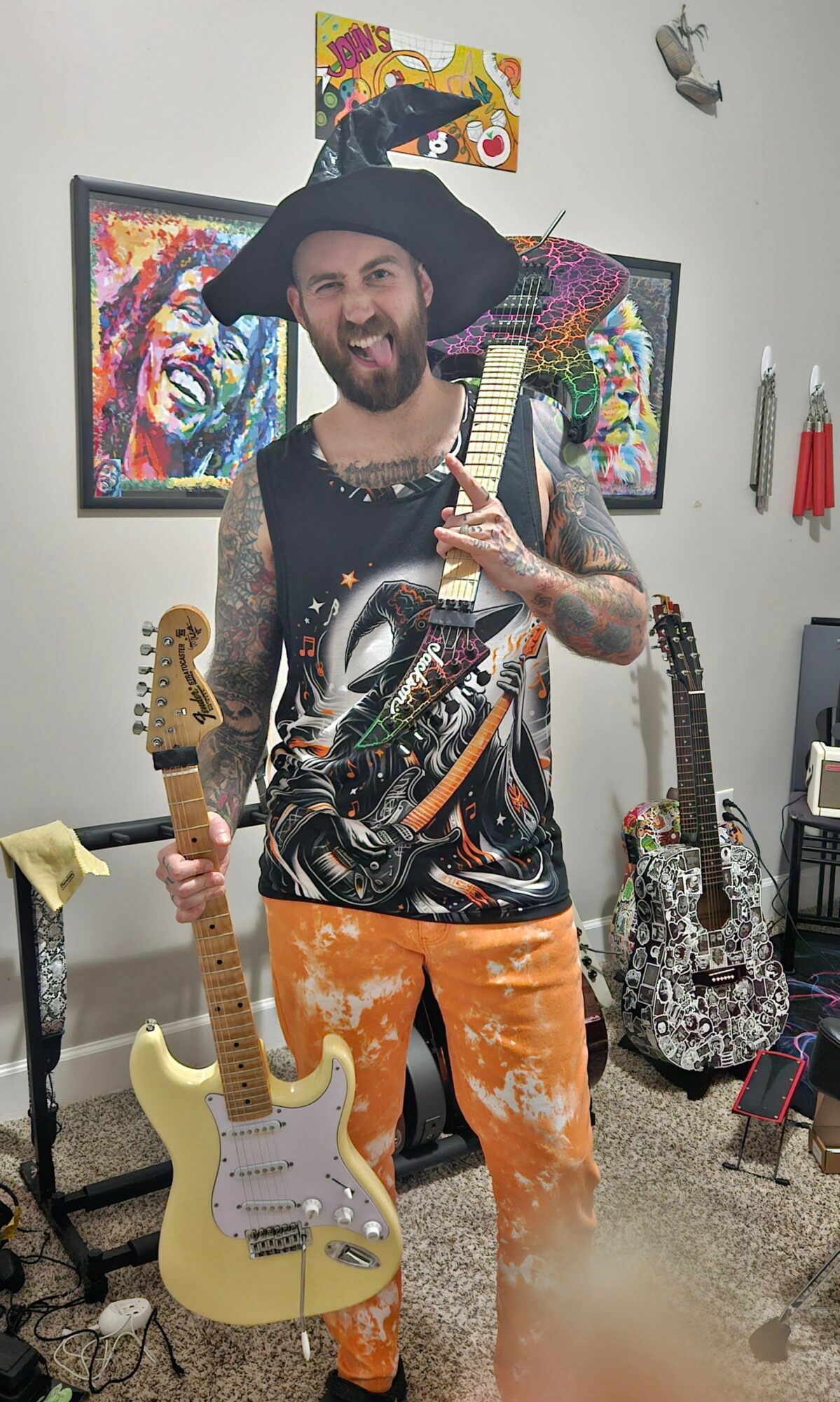

Today we’d like to introduce you to John Marchese
Hi John, thanks for joining us today. We’d love for you to start by introducing yourself.
My relationship with music started long before I could even play an instrument. Growing up, I always felt like there was this rhythm constantly running through my mind. Whether it was the hum of a passing car or the random melodies I’d create in my head, music just seemed to be a part of everything around me. It was like this constant companion. But it wasn’t until my teenage years that I picked up my first guitar. I’d saved up from the various regular jobs I started working at 16—everything from retail to food service—and bought a used guitar. The moment I held it, I knew something had clicked. I’d found the voice I’d been searching for, a way to express myself when words didn’t feel like enough.
At first, playing guitar was just about learning chords and mimicking my favorite songs. But soon, I started to realize how the guitar could be a tool for storytelling, for capturing emotions I couldn’t quite put into words. The more I played, the more I felt like I could say things with my music that went beyond what I could express in conversations. It wasn’t just an instrument—it became my way of communicating with the world and with myself.
As I grew older, I juggled music alongside regular jobs. Working was a necessity, but music was my passion. There were times when I felt stuck, like I was trapped in a routine of work and responsibilities, but my guitar was always there to pull me out of that feeling. Whether I was coming home from a long day or waking up early to get a few hours of practice in before heading out, music became my escape, my therapy, and ultimately, my calling.
I also think those years of grinding through regular jobs shaped me in a profound way. They taught me patience and discipline, which ended up helping me stick with music even when it felt like progress was slow. It wasn’t always easy to balance work, life, and my passion for guitar, but every time I sat down to play, it reaffirmed that this was something I had to keep doing. It became clear to me that, while I had to work to make a living, music was what made me feel alive.
Eventually, I started to approach music more seriously, knowing it was more than just a hobby. I began to see how everything I’d gone through—from the long hours at work to the challenges of everyday life—was shaping my music, adding depth to my sound. The guitar, once just a way to pass time, became a vessel for my personal experiences, a way to capture and share pieces of my journey. It’s funny—looking back now, I realize that all those moments where I struggled to find balance were actually preparing me for this moment, for being able to say, ‘This is who I am. This is my sound.’
Today, I can say that music isn’t just something I do—it’s who I am. Every chord I play, every riff I create, feels like a reflection of the path I’ve walked. It’s been a journey filled with ups and downs, but the guitar has always been there, reminding me of where I started and pushing me toward where I want to go. And that journey is still unfolding.
Would you say it’s been a smooth road, and if not what are some of the biggest challenges you’ve faced along the way?
Smooth? Not at all. Honestly, my journey has been anything but smooth. Like a lot of people, I’ve had to navigate some really tough moments along the way—times that tested me not just as a musician, but as a person. One of the biggest struggles has been getting to know myself, really digging deep and facing personal demons. It’s easy to think you know who you are, but when life throws challenges at you, you start to realize how much growth you still have to do. And that’s not always a comfortable process.
Beyond the internal battles, life threw a lot of curveballs my way. I’ve been through my fair share of relationships and breakups, some of which left me feeling completely unmoored. You pour so much of yourself into a relationship, and when it ends, it can feel like you’ve lost a part of yourself. That feeling can knock you down hard, but at the same time, it’s those moments that pushed me to find solace in my music. It became a way for me to process the pain, the loss, and everything in between.
And then there’s the stuff you can never really prepare for—losing friends and family, fights that end relationships you thought would last a lifetime, and the sudden, unexpected deaths of loved ones. Those moments hit hard. They put everything into perspective but also leave this huge void. Coping with grief was one of the toughest parts of my journey. It’s a kind of pain that sticks with you, and it doesn’t have a clear resolution. But for me, picking up my guitar became a way of channeling that pain into something tangible, something I could process through music. The guitar almost became my therapist during those times, helping me work through the weight of it all.
There were also the struggles everyone goes through—growing up, moving from place to place, feeling unsettled. With each new phase of life, I had to figure out how to stay grounded in my music while dealing with the chaos of everything else. Balancing all of that while trying to find my footing in music wasn’t easy. Some days, it felt like I was being pulled in a hundred different directions, and music was the only thing keeping me from falling apart.
But despite all of that, or maybe because of it, I’ve grown. The struggles I’ve faced have shaped me into the person and musician I am today. Each hardship became a note in my music, each loss a chord I play, and each personal battle a riff that speaks to the journey I’ve been on. In a way, the rough road has made my music more real, more honest. Without those struggles, I don’t think I’d be where I am today.
As you know, we’re big fans of you and your work. For our readers who might not be as familiar what can you tell them about what you do?
What I do is express myself through music, primarily through the guitar. But it’s more than just playing an instrument—it’s about storytelling, creating something that speaks to people on a deeper level. I specialize in guitar playing, but my real focus is using music to connect, to communicate emotions that can’t always be put into words. I’m known for my unique sound, which is a reflection of everything I’ve been through—the struggles, the highs, and the love that surrounds me.
What I’m most proud of is how far I’ve come on this journey. It hasn’t been easy, but looking back, I can see how each step, each struggle, has pushed me forward. I’m proud of the fact that I’ve stayed true to myself, especially in my music. It’s easy to get lost in trends or to follow the crowd, but I’ve always been committed to finding my own voice, and that’s something I hold onto.
What sets me apart, I think, is that authenticity. I’m not trying to be someone I’m not, and I’m not chasing perfection. My guitar playing, in particular, is deeply personal. It’s not just about technical skill; it’s about emotion, about channeling everything I’ve been through into the music. I feel like that honesty comes through in my sound, and that’s what makes it different. Music isn’t just something I do—it’s who I am, and that’s what sets me apart.
What sort of changes are you expecting over the next 5-10 years?
I think we’re already seeing some major shifts in the music industry, and it’s going to keep evolving in some interesting ways over the next 5-10 years. One of the biggest changes is how technology has completely opened up the playing field. Today, musicians have so many tools at their disposal—whether it’s recording software, social media, or platforms like Bandcamp and YouTube—that allow them to share their music without relying on traditional labels. I think we’ll see more and more artists taking control of their careers and building their own paths, which is both exciting and empowering.
On the flip side, that also means the music world is becoming even more saturated. There’s a flood of new artists and content every day, so standing out is going to be more challenging than ever. I think the key for musicians, especially in the guitar world, is going to be authenticity. Listeners can tell when something’s real, when an artist is truly connected to their music. So while the tools and platforms are evolving, the heart of it—connecting with people—will never change.
In terms of guitar playing, I think we’re going to see a lot more blending of genres and techniques. The lines between different styles are getting blurrier, and guitarists are pulling from all kinds of influences—jazz, metal, folk, even electronic music. The traditional boundaries are breaking down, and that’s leading to some really innovative sounds. At the same time, I think there’s a growing appreciation for the roots of guitar playing. People are looking back at the classics, like blues and rock, but they’re reinterpreting them in new ways. It’s like this balance between respecting the past and pushing the boundaries of what the guitar can do.
Another trend I see is the rise of DIY culture in music. More artists are not just playing guitar—they’re building their own pedals, experimenting with their gear, and even recording and producing their own tracks. The idea of being a well-rounded, self-sufficient artist is becoming more important. And with that, I think we’ll see more innovation in terms of gear and how guitarists use technology to create new sounds.
So while the music industry is shifting fast, at the core, the guitar world will keep evolving with it. But I think the artists who are able to stay true to their sound and keep experimenting with where music can go are the ones who will thrive in the long run.
Pricing:
- Pricing to book a show depends on the details and length of the event you’d like me to come play at – visit applejohnandthenoizemakerz.com for more info and to book a show!
Contact Info:
- Website: linktr.ee/applejohn_
